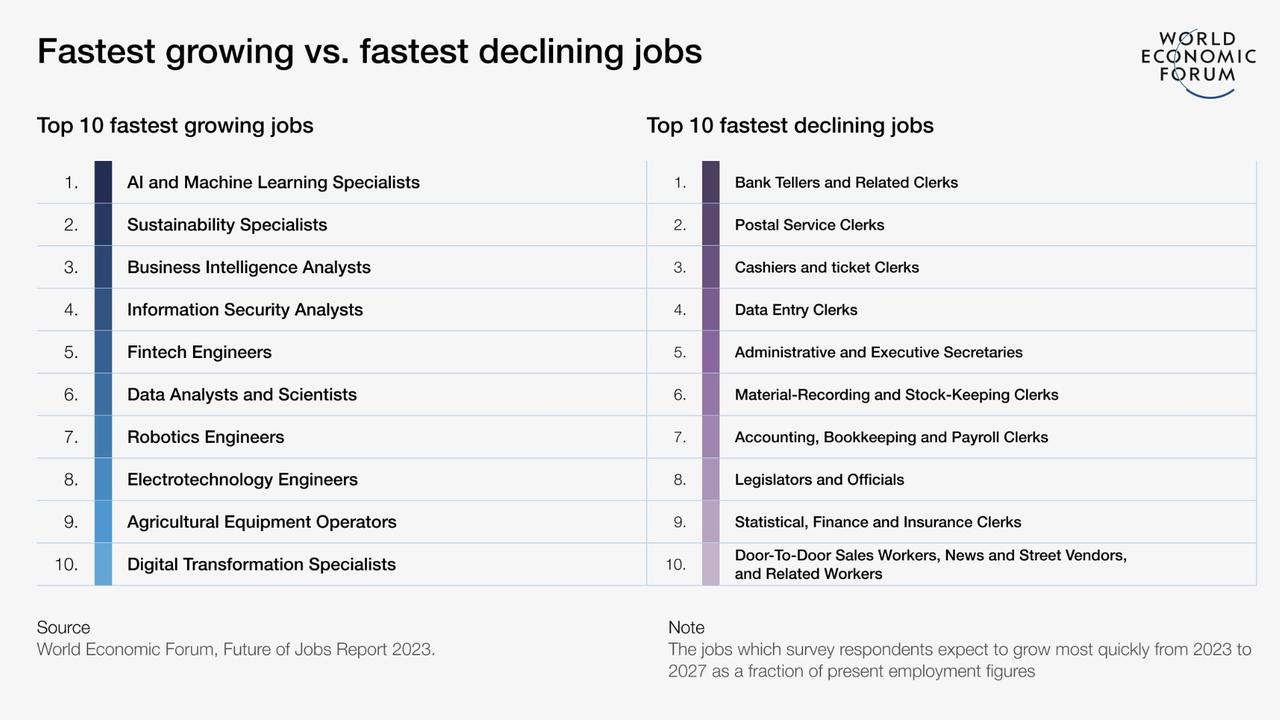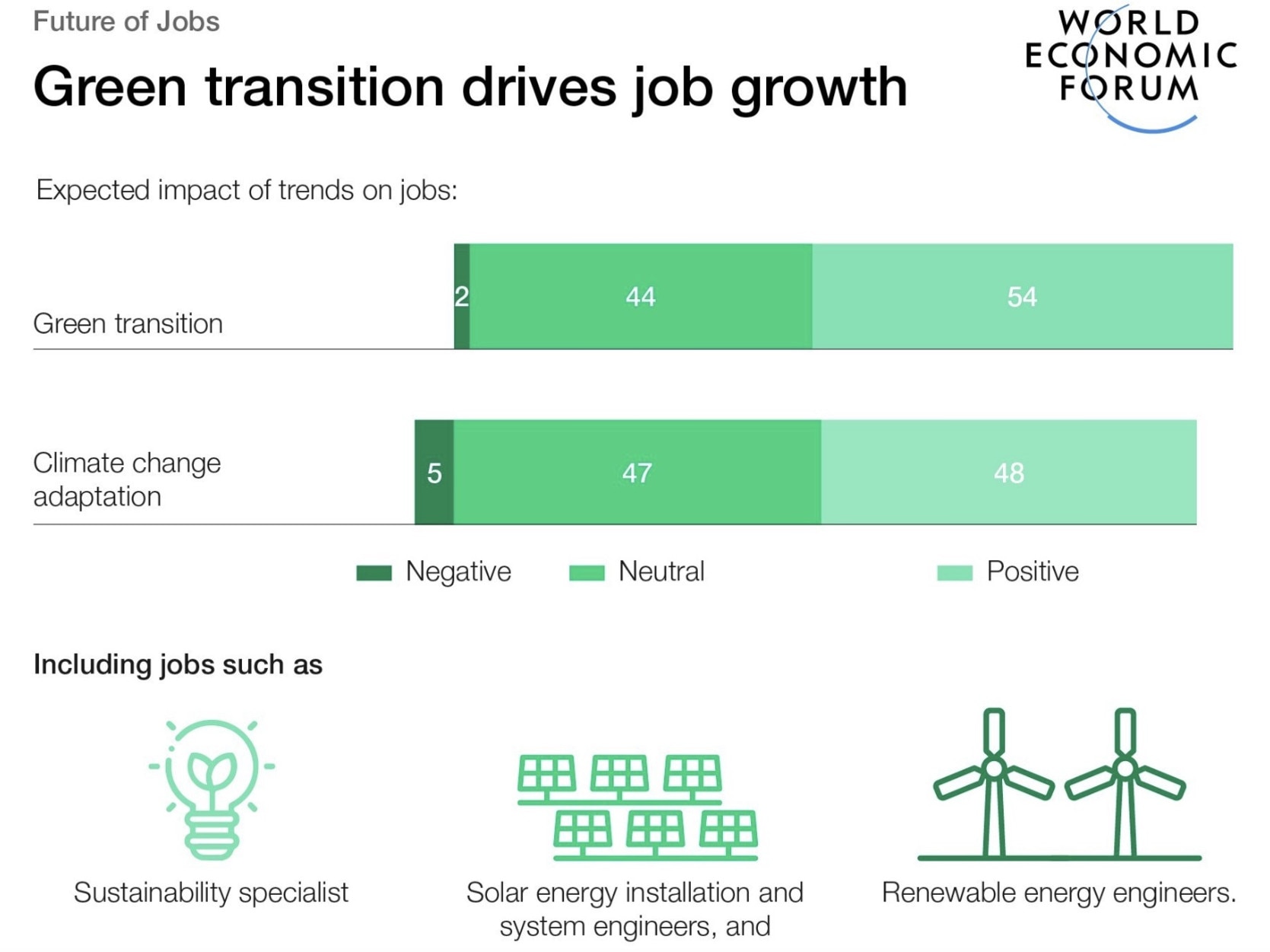The global labor market is currently experiencing a disruption of significant magnitude due to advancements in technology and digitization, which is no secret. The World Economic Forum's Future of Jobs Report 2023 forecasts that 23% of jobs will undergo a tectonic shift in the next five years. The report summarized this shift in one word - disruption. In this report, respondents expect a decline of 83 million jobs and structural job growth of 69 million jobs out of the 673 million jobs analyzed in the dataset. The rise of artificial intelligence and other technologies is considered the main reason behind the predicted unemployment wave.
A considerable proportion of companies surveyed, three-quarters of the 803, are planning to adopt big data, cloud computing, and AI technologies in the next five years. Respondents anticipate that 42% of business tasks will be automated by 2027, potentially disrupting 44% of the current workforce's skills, with up to 60% needing further training within five years. Task automation is expected to range from 35% of "reasoning and decision-making" to 65% of "information and data processing" by that time. Mass restructuring of businesses to compete in the fast-paced market is predicted to address this issue.
However, the global shift to save costs is likely to come at the expense of workers in professions that may soon become "outdated." Traditional jobs such as bank tellers, postal service clerks, and data entry staff are expected to decline by over a third in the coming years, leaving millions unemployed. Data clerks are expected to be the most affected, with an estimated eight million job losses in the next five years.
The report recommends that governments and businesses invest in education, re-skilling, and social support structures to aid the transition to the jobs of the future.
The report suggests that a global shift towards green energy could lead to the creation of 30 million low-emissions jobs by 2030. The world is actively pursuing decarbonization efforts to combat the climate crisis and job losses. The International Energy Agency predicts that a green-recovery plan could generate 3.5% of global GDP growth and 9 million new jobs annually. Despite the growth of green jobs, reskilling and upskilling towards green skills are not progressing at the same rate.
The Managing Director of the World Economic Forum, Saadia Zahidi, emphasized the need for adaptation in the rapidly changing environment, largely affected by increasingly powerful artificial intelligence. Governments and businesses must invest in supporting the shift to the jobs of the future through education, reskilling, and social support structures.
The report highlights the importance of diversity, equity, and inclusion (DEI) programs, with a majority of companies surveyed prioritizing women, youth under 25, and those with disabilities. The report also predicts that the world's workforce will automate faster than expected, with employers dividing work between humans and machines equally by 2025.
While the World Economic Forum faces criticism over its handling of climate change, it remains a strong supporter of battling the crisis. The report claims that most technologies will have a "net positive" impact on jobs over the next five years, with big data analytics, climate change and environmental management technologies, and encryption and cybersecurity expected to be the biggest drivers of growth.





















